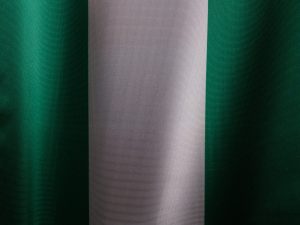Denim Revolution: New Cuts, Washes, and Sustainable Practices
The denim industry has been going through a revolution in recent years, with new cuts, washes, and sustainable practices taking center stage. While denim has been a staple in fashion for decades, it has also been one of the most polluting and wasteful industries. However, with the increasing awareness of sustainable fashion, denim brands have been forced to reimagine their production processes and come up with innovative solutions. This denim revolution is not only changing the way we look at our wardrobe but also addressing the environmental impact of our fashion choices.
New Cuts: A Shift Towards Comfort and Inclusivity
Gone are the days of rigid and uncomfortable denim. The new denim revolution has brought in a whole range of cuts that prioritize comfort without compromising on style. From loose-fitting mom jeans to stretchy jeggings, denim is now made to fit every body type and size. This shift towards inclusivity has been long overdue in the fashion industry and denim brands have finally caught up.
Additionally, non-binary and gender-neutral cuts have also become more mainstream. Brands are increasingly launching gender-fluid denim lines to cater to a demographic that was previously overlooked. This is a huge step towards breaking gender stereotypes and promoting diversity in the fashion world.
New Washes: An Emphasis on Sustainability
The denim industry is notorious for its heavy use of water and chemical-intensive washes. However, with the rise of sustainable fashion, brands are exploring new and eco-friendly ways of achieving the desired washes. One of the most popular methods is laser technology that can create different distressed looks without using any water or chemicals.
Brands are also turning to organic cotton, recycled denim, and other sustainable materials to reduce their environmental impact. This not only promotes responsible consumption but also encourages a circular economy where old denim can be turned into new garments.
Sustainable Practices: From Farm to Store
The denim revolution is not limited to just the end product but also focuses on sustainable practices throughout the supply chain. Brands are now working closely with cotton farmers to ensure fair wages and safe working conditions. They are also investing in research and development of new eco-friendly fibers and dyeing processes.
Moreover, many brands are implementing take-back programs where customers can return their old denim for recycling or receive a discount on their next purchase. This is a step towards creating a closed-loop system where fashion waste is minimized and resources are conserved.
The End of Fast Fashion Denim?
The denim revolution has also sparked a conversation around the damaging effects of fast fashion. With the rise of sustainable denim, consumers are becoming more aware of the true cost of their cheap and trendy jeans. Slow fashion brands are gaining popularity, offering ethically-made denim that can last for years, as opposed to fast fashion jeans that barely survive a few washes.
The denim revolution has certainly brought about positive changes in the industry. However, there is still a long way to go in terms of sustainable practices and ethical production. As consumers, it is our responsibility to support brands that are making conscious efforts and demand transparency from those that are not. The denim revolution is a step towards a more responsible and environmentally-friendly fashion industry, and it’s something worth investing in.










